Culture Studies
In which Norm spins up Criterion's splendid new 4K restorations of CROSSING DELANCEY and DRUGSTORE COWBOY.
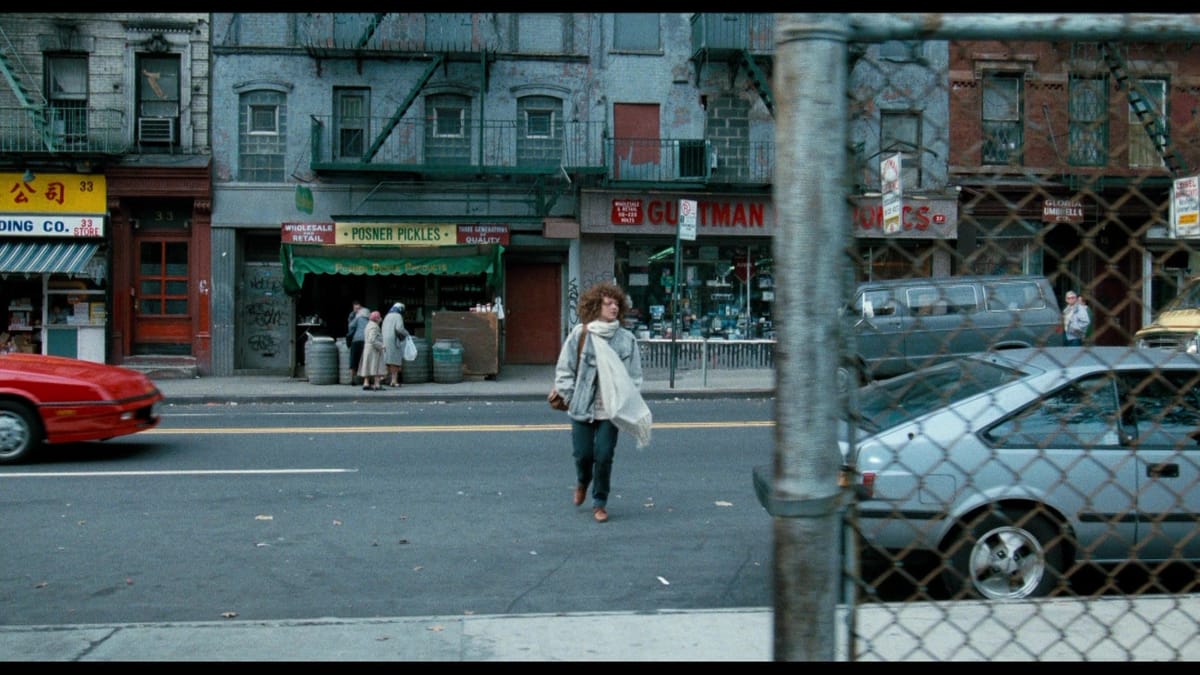
Yes, everything is on fire right now. But Crossing Delancey and Drugstore Cowboy join the Criterion Collection this week, and that is something worth celebrating.
Their simultaneous release is even appropriate, since the two films – one a major studio production, the other as independent as it gets, arriving a year apart – represent a turning point in American movies. Joan Micklin Silver’s Crossing Delancey is a small, character-driven drama, one with modest stakes and an almost gentle pace; within years, the studios would cede such films to distributors like New Line and Miramax, mostly because the rise of home video would make their theatrical releases less and less profitable.
Gus Van Sant’s Drugstore Cowboy, on the other hand, would have been produced with an eye on the home market, knowing that’s where the film would make the most money. Ironically enough, this is the first time either title has been released on Blu-ray in North America, let alone 4K.
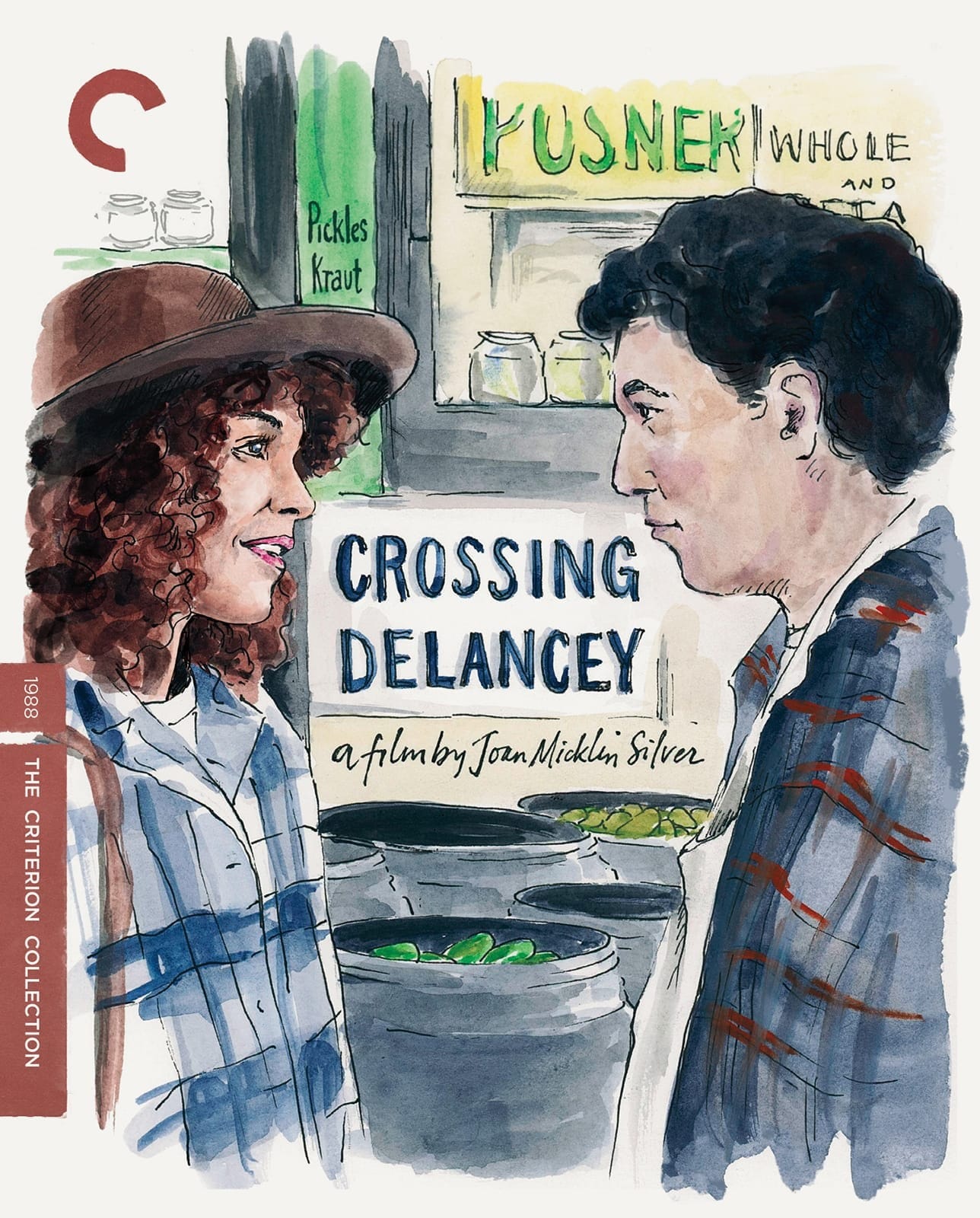
So, Crossing Delancey first. When I say Micklin Silver’s film is small, I don’t mean that as a negative: Based on Susan Sandler’s stage play, it’s a modest study of Izzy Grossman (Amy Irving), a New Yorker juggling two versions of herself: Uptown, she’s a stylish young woman with a good job at a tony bookstore and a very casual thing with a neighbor (John Bedford Lloyd), while down in the Lower East Side, her singlehood is regarded by her old-world grandmother (Reizl Boyzk) as a flaw to be remedied, lest Izzy die alone and miserable.
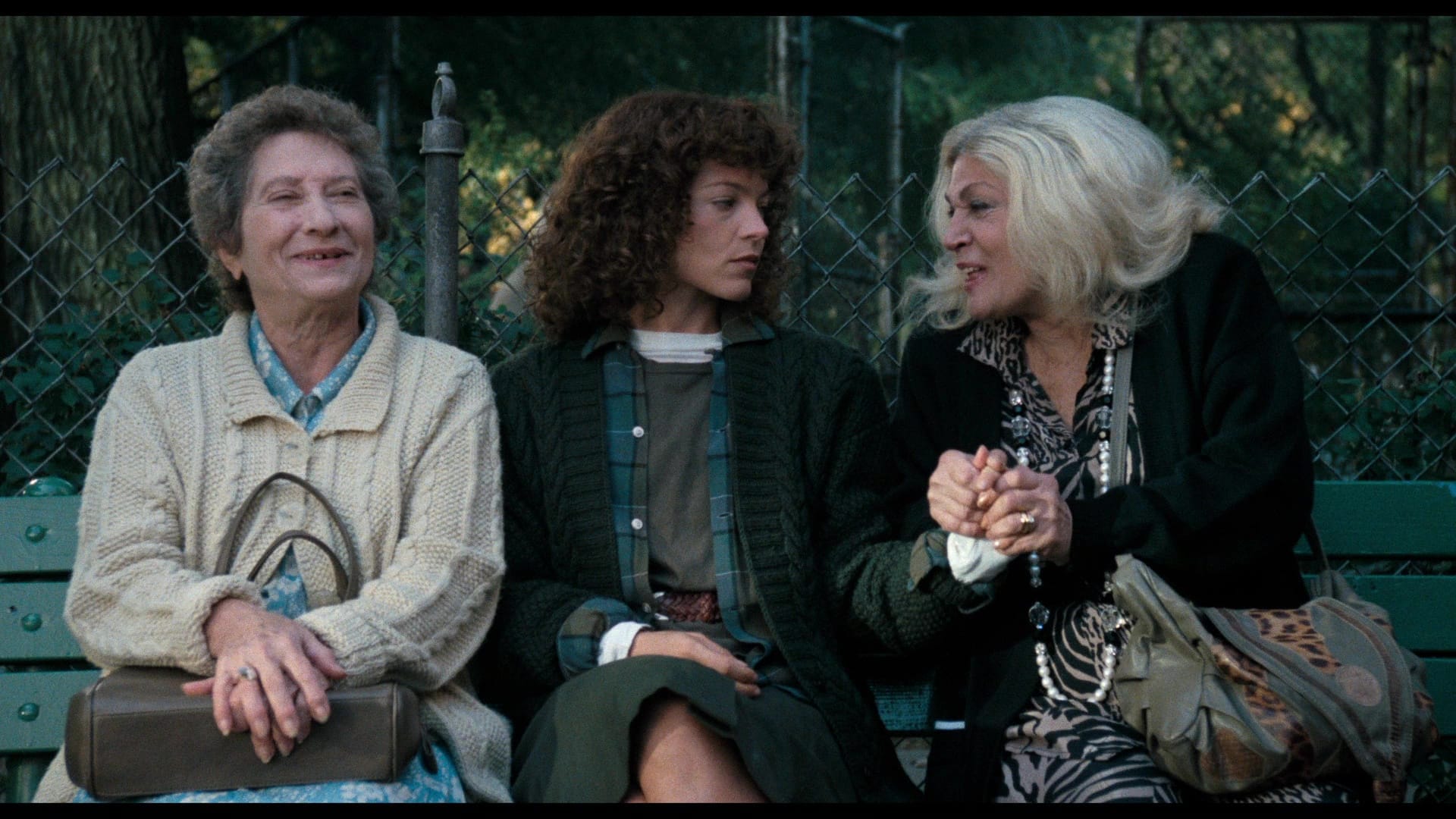
So Bubbie conspires with the local matchmaker (Sylvia Miles) to set Izzy up with a nice Jewish boy: Sam Posner (Peter Riegert), who has taken over his late father’s pickle shop in the neighborhood. Sam seems like a decent guy, but Izzy is more interested in a European author Anton Maes (Jeroen Krabbé), who’s cultured and suave and wears scarves indoors, so that’s that. Or it would be, if Izzy didn’t keep going back downtown to see Sam.
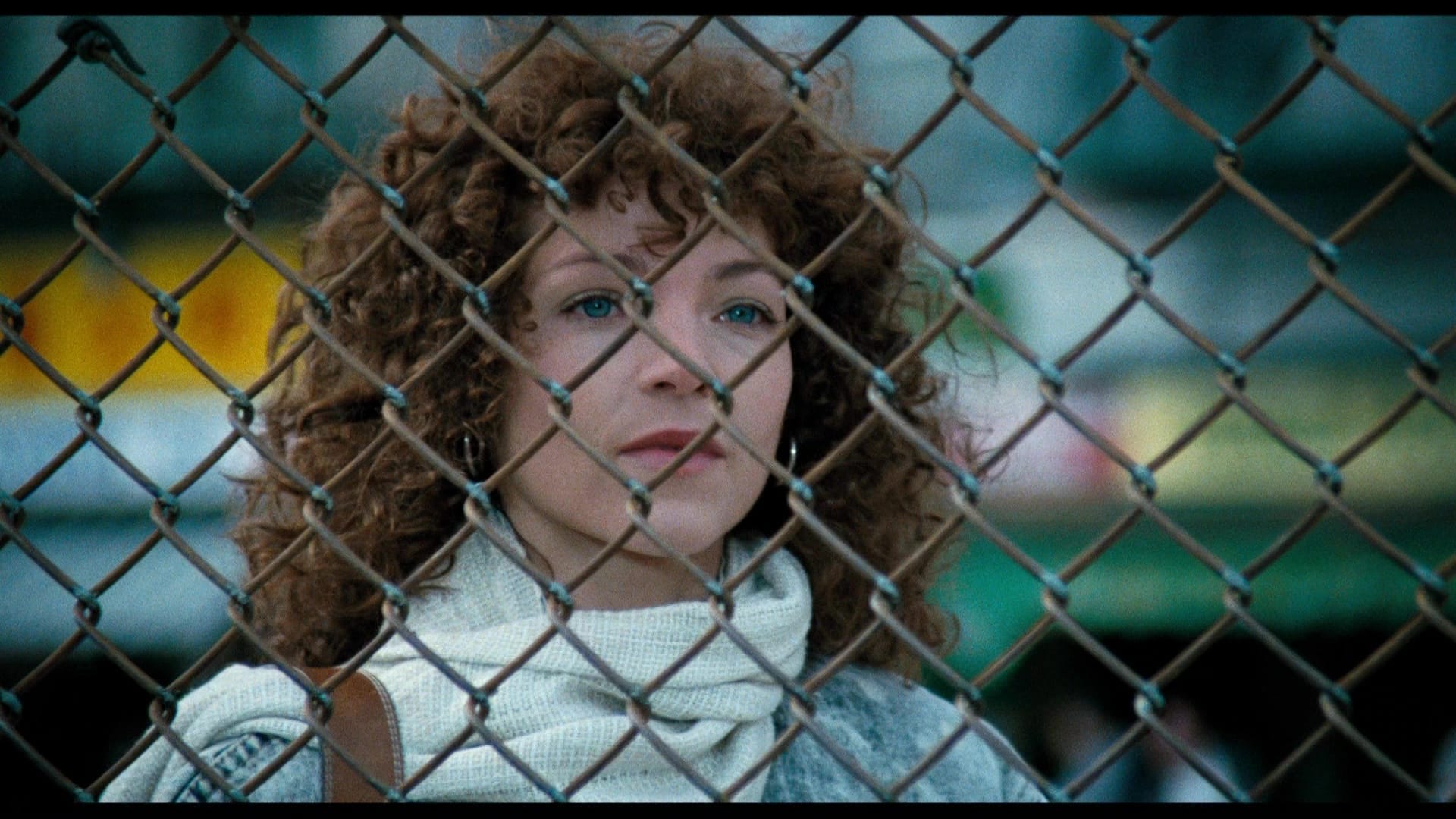
Crossing Delancey is first and foremost a showcase for Irving, who’s in every scene and carries the film effortlessly as the conflicted Izzy. It was her first film lead after a string of girlfriend roles, and she owns the screen from the moment she appears, giving the character a dimensionality and subtle warmth that tells us she’s at ease in almost every situation – except when Sam is around. Izzy’s poise wobbles in the face of Sam’s patient charm, and Irving and Riegert show us how their characters are dancing with one another even when they’re sitting still.
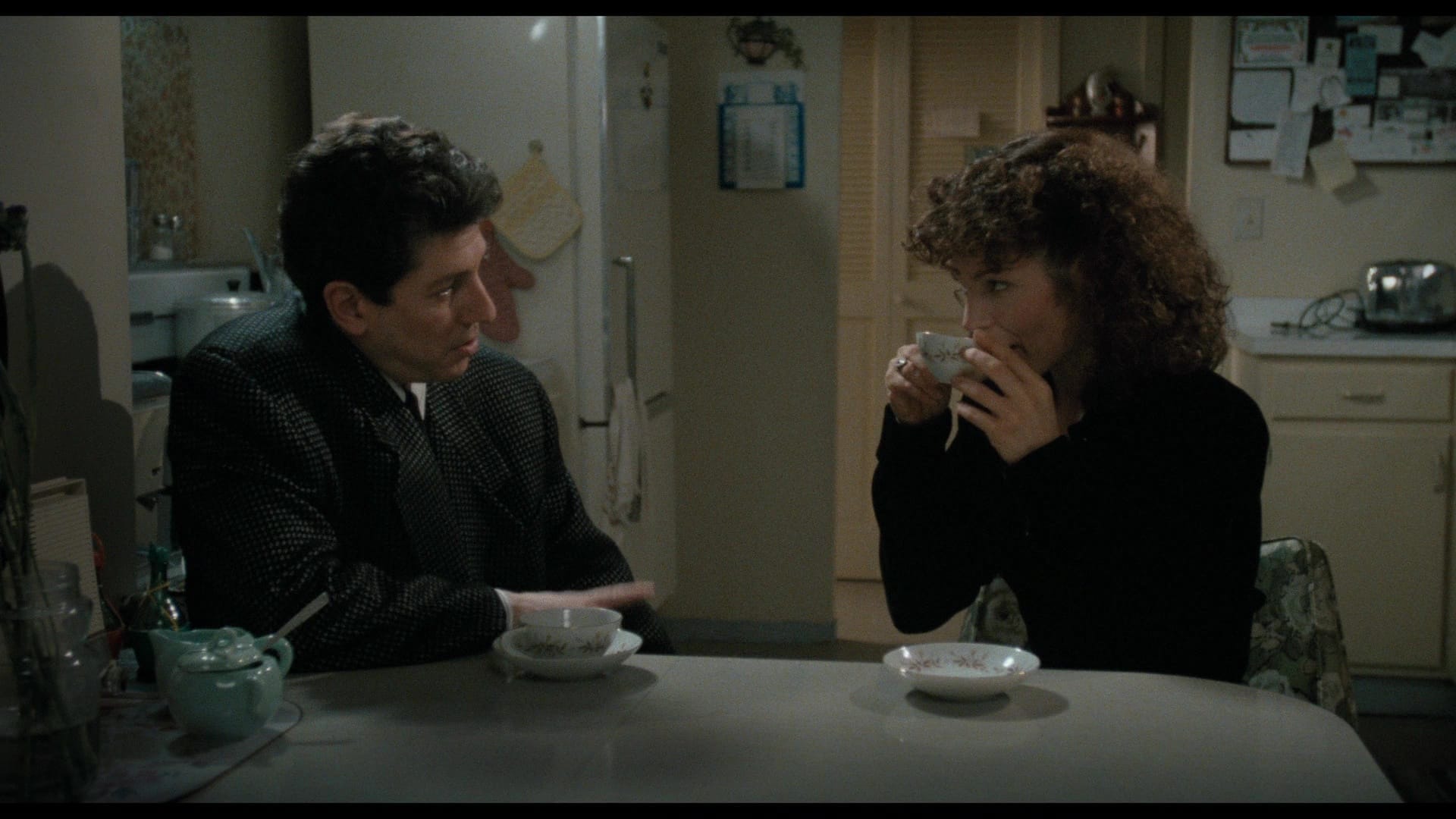
It's the stillness that works for me. There’s a version of Crossing Delancey that plays like the Jewish Moonstruck, and I suspect that’s what Warner was hoping Micklin Silver would deliver. Instead, she made a movie where no one ever raises their voice or makes a passionate speech; they talk a lot, sure, and Sam speaks clearly and confidently about what he wants from Izzy, but where John Patrick Shanley wrote an opera, Sandler composed her play in a minor key.
What distinguishes it now is the way Micklin Silver, who’d established herself with similarly focused character pieces like Hester Street and Chilly Scenes of Winter, creates a visual analogue for Sandler’s subtext: The push and pull between Izzy’s progressive, independent lifestyle and her traditional background.
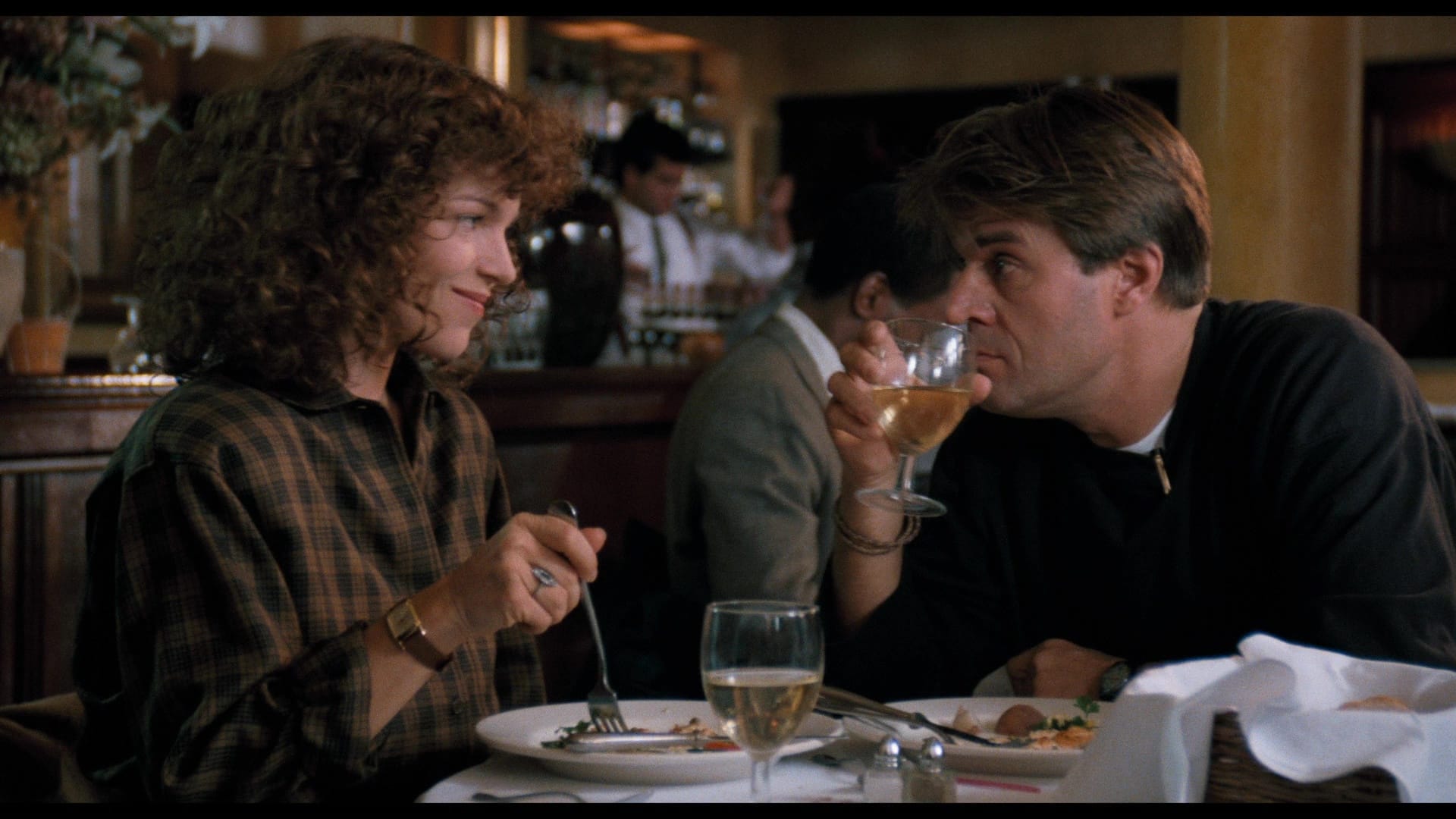
Is Izzy attracted to Anton because he’s everything her people aren’t? Does she immediately reject Sam – politely, but still – because she believes he’s too Jewish? Sandler’s script never comes out and says Izzy is ambivalent about her heritage, but Micklin Silver draws a clear distinction between her uptown and downtown lives: The former is very white, very calm and very gentile, shot by cinematographer Theo van de Sande in moneyed browns and golds, while the latter is noisy, crowded and unmistakably Yiddish, drawn in drywall and concrete. It’s all New York, of course, but it’s made very clear that Izzy is commuting between worlds every time she gets on the subway.
The one thing about the film that’s dated badly is its depiction of the few Black characters with speaking parts: A pair of women Izzy and her uptown friend Candyce (Faye Grant) overhear discussing sex at the gym, and a hapless cab driver trainee – played by a young Reg E. Cathey! – are presented as broader comic figures for the audience to laugh at, rather than with, and even though these scenes are clearly intended to place Izzy and her own cultural issues in the context of a larger melting pot, they just don’t work. At first I thought their broadness might be intended to reflect Izzy’s point of view, in the same way Miles’ matchmaker is perceived only as a stereotype bordering on grotesquerie … but even that is awfully uncomfortable. So let’s just agree that some elements of Crossing Delancey have aged badly, even as its love story remains pure.
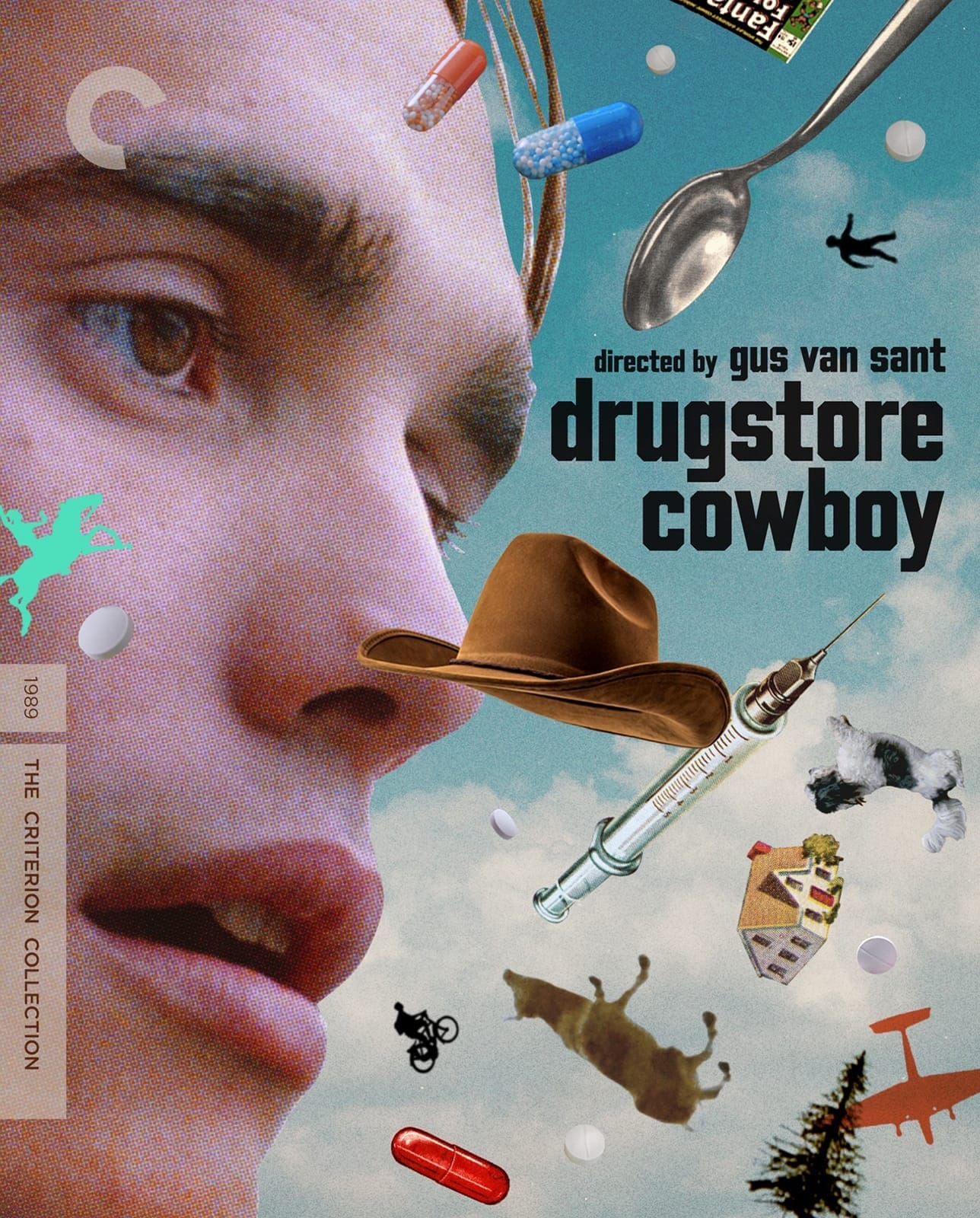
It's funny, I always think Criterion has more of a Gus Van Sant library than it actually does; his status in the American indie renaissance makes him such an obvious fit for the collection, but until this week Mala Noche, My Own Private Idaho and To Die For were his only entries. All good discs, by the way – and all from his first decade of filmmaking, as it happens.
Drugstore Cowboy is from the same decade, and it's the film that arguably should have been in the Collection the longest; I have to assume the rights were an absolute nightmare to untangle. But here it is, and it's beautiful.
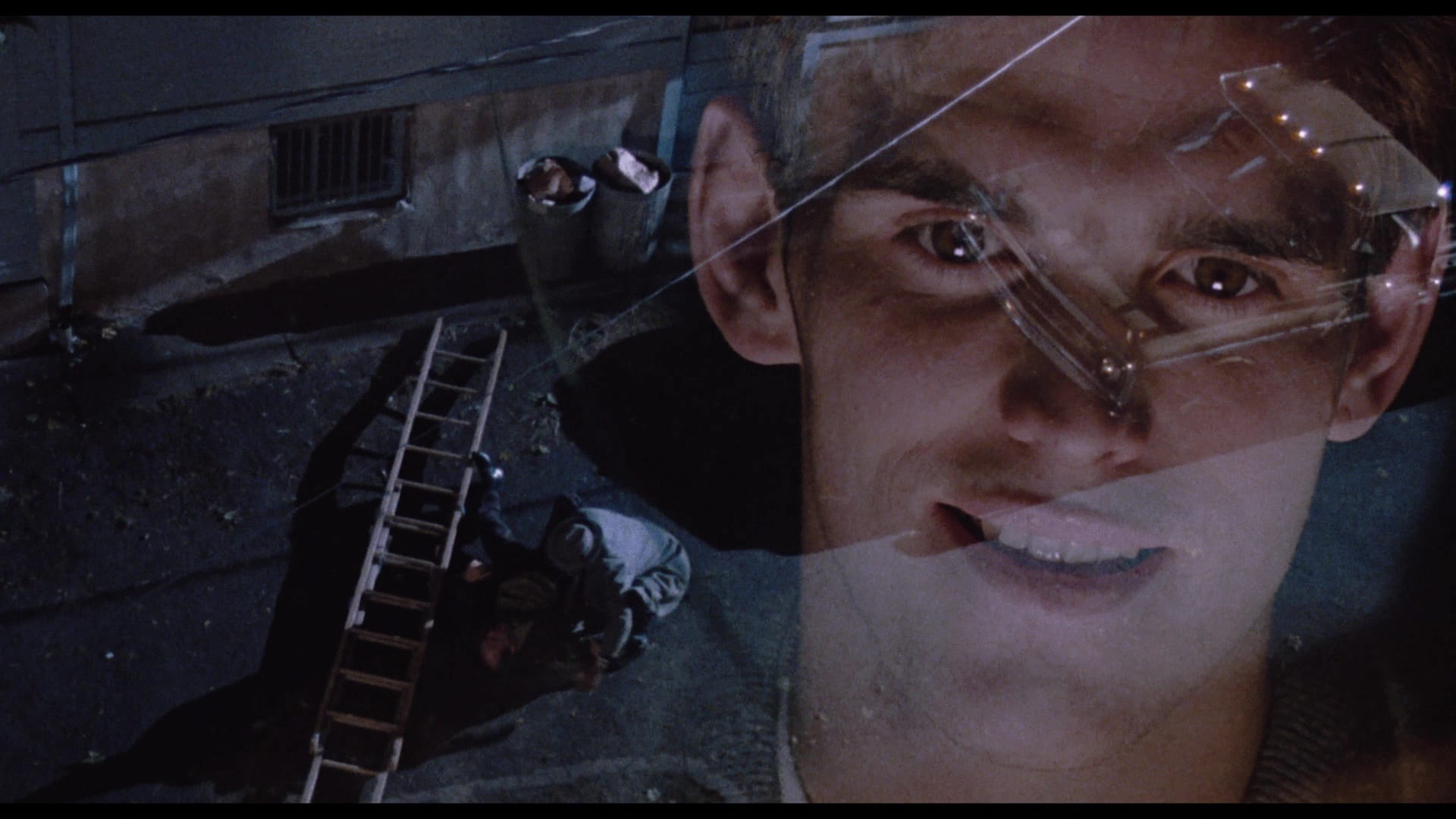
It's difficult to describe the impact that Drugstore Cowboy had on indie cinema in 1989. Van Sant's dozy, blurry adaptation of James Fogel's thinly veiled autobiography – about a group of addicts pulling scams at pharmacies and hospitals to feed their habit, and letting everything else in their lives go fully to hell – may have paved the way for Trainspotting and Requiem for a Dream, but it did so in an almost lyrical manner, finding a visual analog for the characters’ highs while refusing to look away from the misery they'll never be able to outrun.
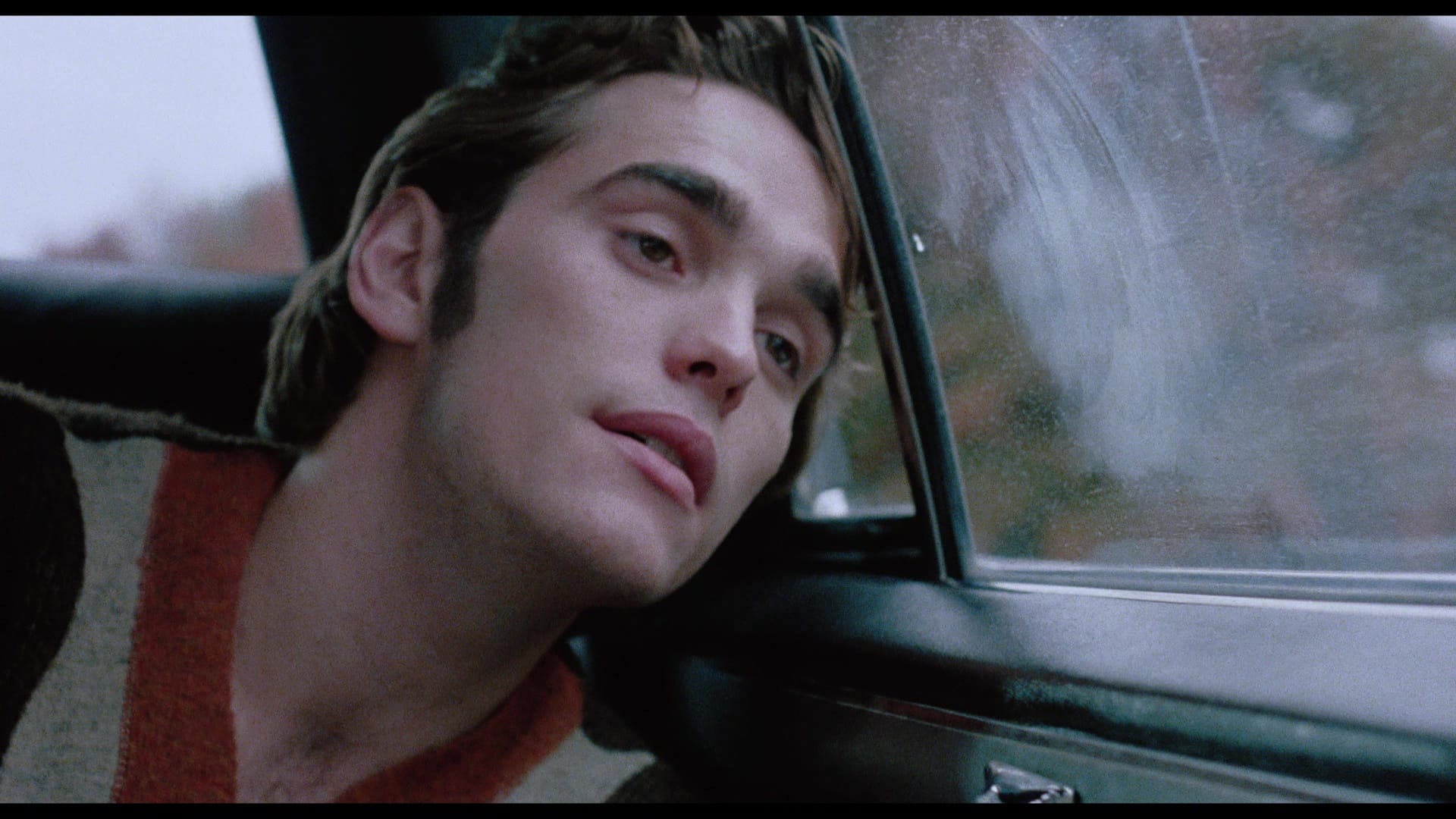
Matt Dillon was still the pretty kid from The Outsiders and Rumble Fish, so seeing him as the hollow, amoral Bob was genuinely shocking; Kelly Lynch, James Le Gros and Heather Graham had all been working for a few years, but no one had offered them this sort of showcase. Everyone was up for it, and Van Sant knew exactly what he had.
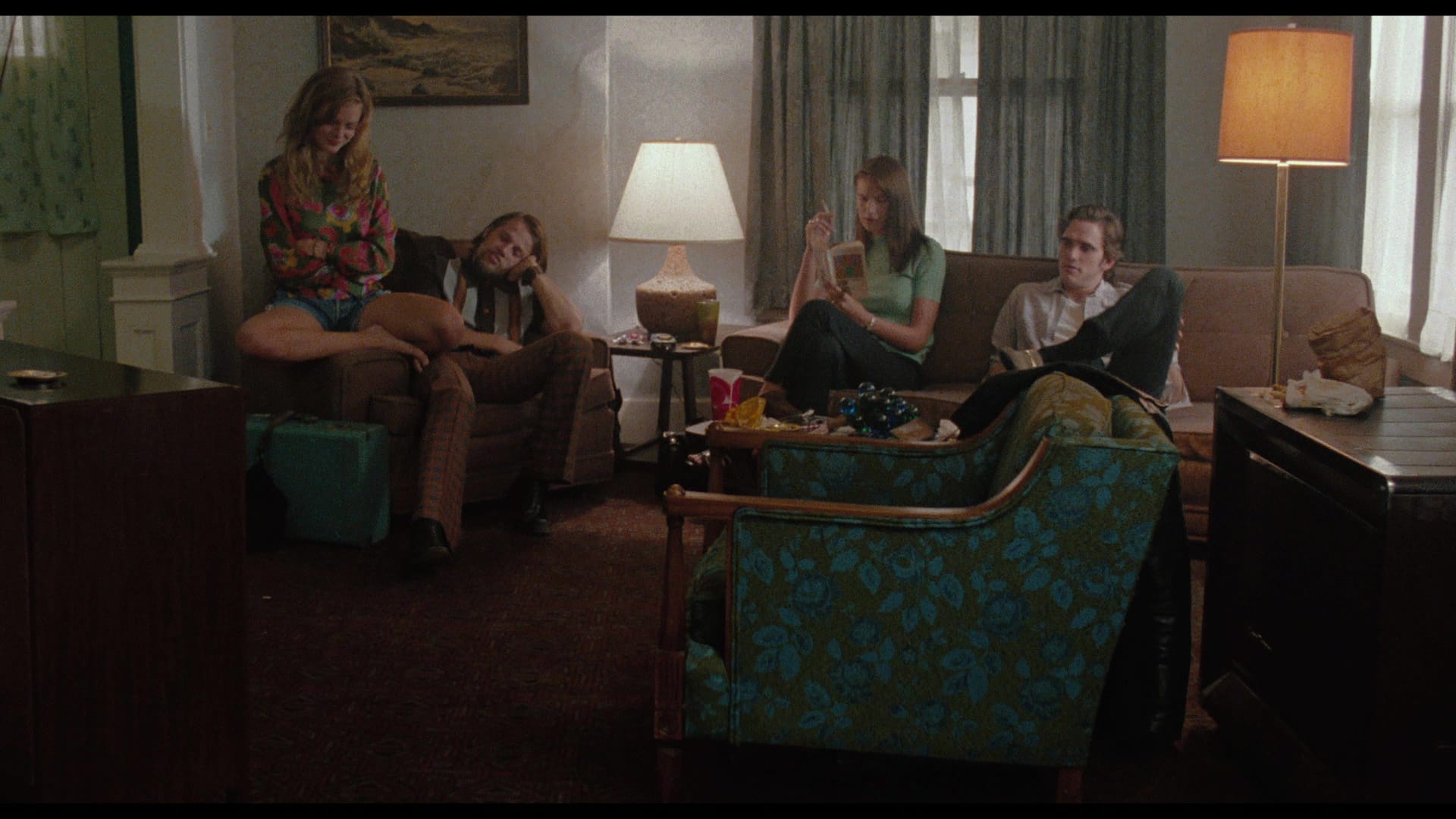
Set in Portland in the early ’70s, the film plays out in incidents – conversations, confrontations, near-misses – as Bob and his ersatz family drift from one smash-and-grab to the next, just careful enough to stay ahead of the law, personified here by a sputtering James Remar. (Really, the casting here is incredible; getting William S. Burroughs for a cameo as a dissolute priest was just the icing on the cake.) It’s not a good life, which is of course the point; there’s nothing glamorous about any of this, and Van Sant makes damn sure we understand it. The highs are fleeting. That’s the point.
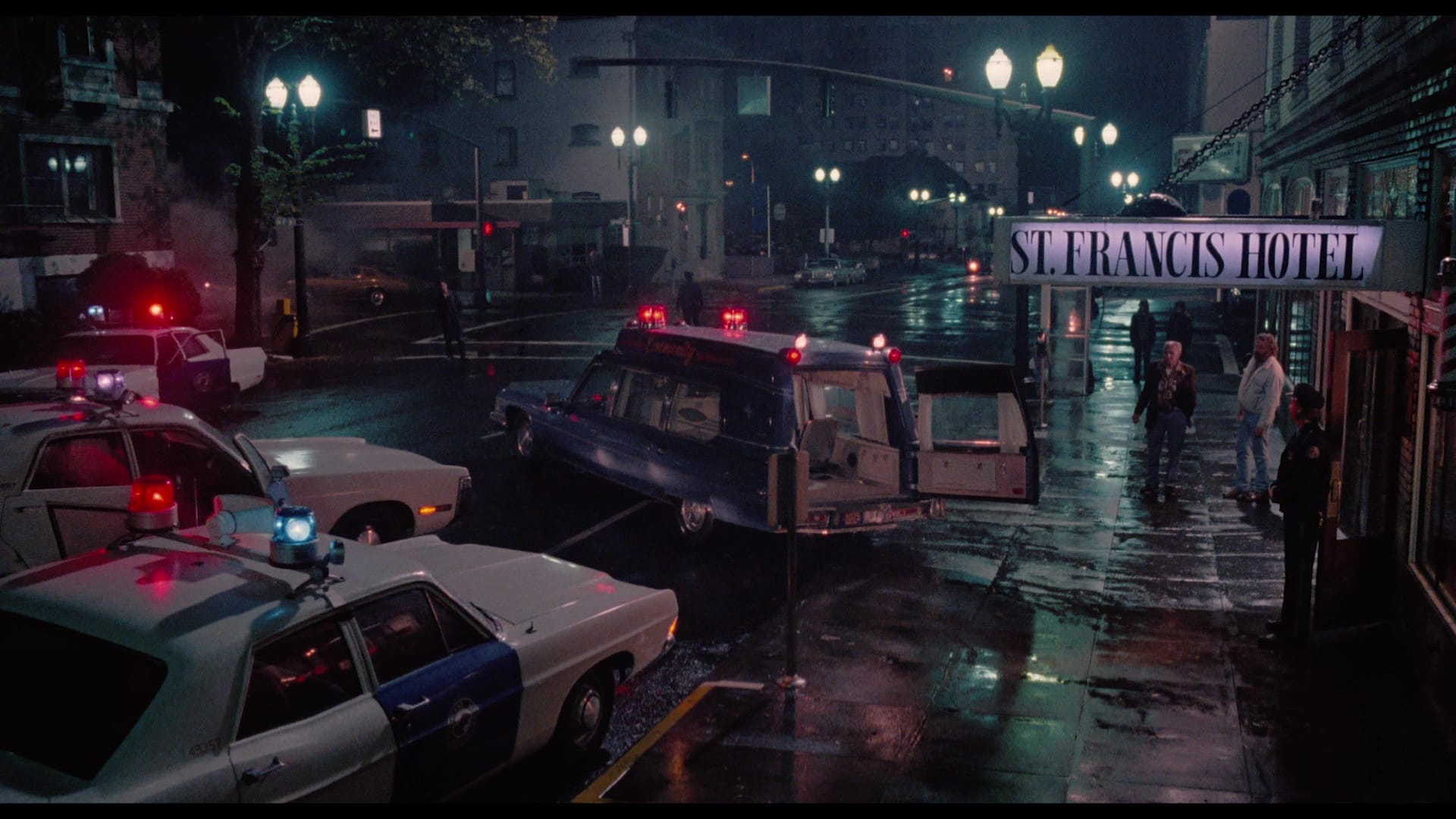
Criterion’s disc is built on an excellent new restoration, honoring the film’s limitations as well as its strengths; Van Sant and his DP, Robert Yeoman, did a lot with very little money, and this presentation – especially in the UHD version – comes as close to replicating the texture of a film print as anyone could want. The two-channel stereo soundtrack is presented in uncompressed PCM, as God intended.
Extras are modest but well-chosen: The commentary Van Sant and Dillon recorded for the Artisan DVD release is here, along with that disc’s half-hour making-of documentary. Kelly Lynch and Robert Yeoman sit down for new retrospective interviews, and Criterion has also secured some 50 minutes of deleted scenes and alternate takes – in unmatted 4:3, sourced from what appears to be VHS - that play as a sort of out-of-body version of the finished film. (Amanda Plummer even turns up, giving the exact sort of performance you would expect from Amanda Plummer.) The theatrical trailer is also included, promising audiences a much more conventional experience than Van Sant was ever interested in giving them. Good job, everyone; now do Psycho. Seriously, he’d be into it.
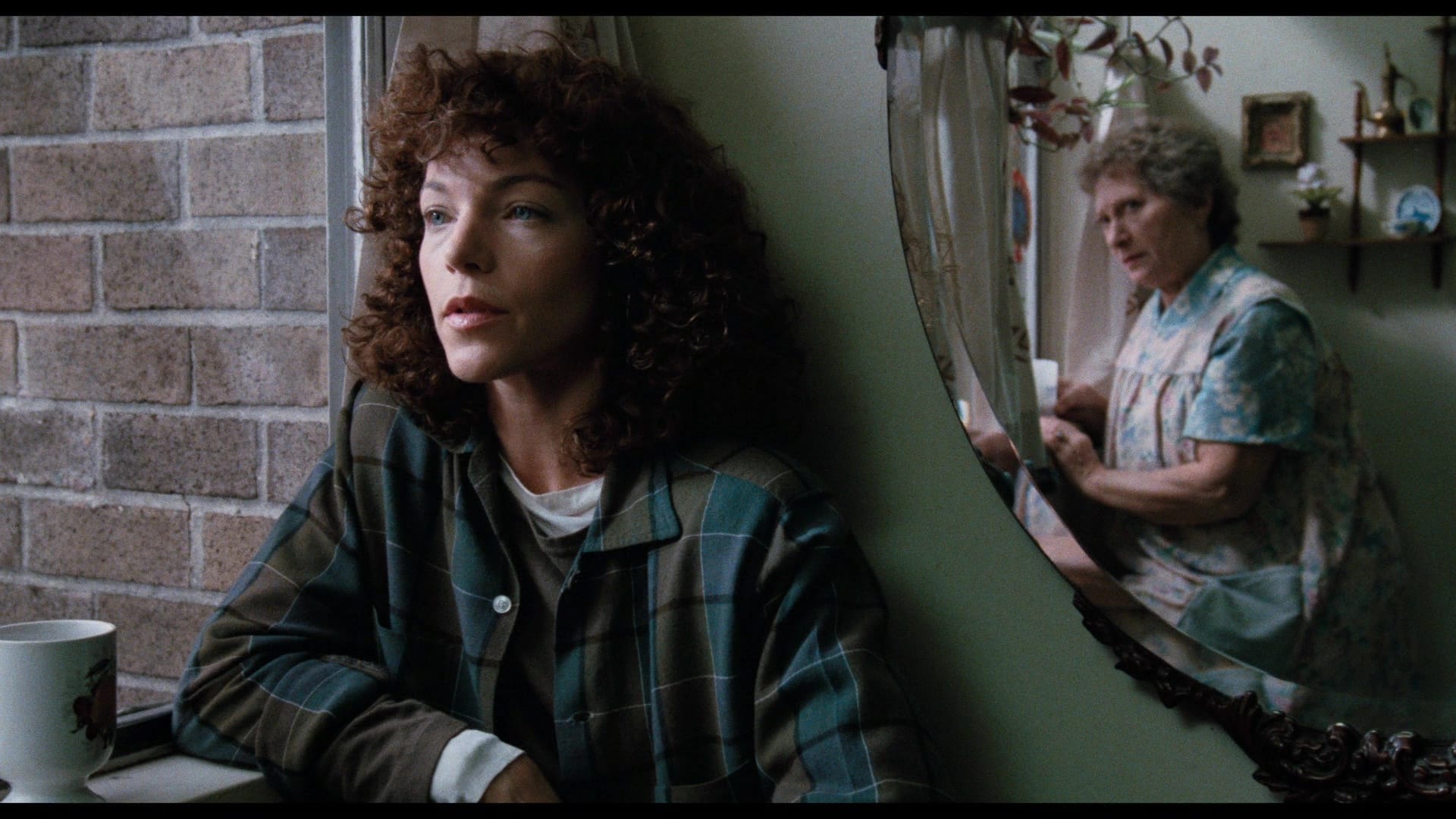
Criterion’s Crossing Delancey package – built around an exquisite new restoration approved by van de Sande – is even smaller, but still carries some weight. There’s a 1988 audio recording of Micklin Silver delivering a lecture at the American Film Institute in which she discusses her characters and their worlds, and an extremely charming reunion with Irving, Riegert and screenwriter Sandler, who are very conscious of the film’s legacy, clearly proud of its endurance and very happy to be hanging out for a victory lap. It’s a breezy conversation that still takes the work seriously, and anyone who loves the movie will be enraptured. Can’t blame them.
Crossing Delancey and Drugstore Cowboy are available Tuesday in 4K/Blu-ray combo editions from the Criterion Collection. Blu-ray editions are also available, but why deprive yourself.
Up next: September 5 explores the ethical questions of covering a hostage crisis, and Francis Lawrence’s Constantine gets a 4K upgrade to mark its 20th anniversary.
